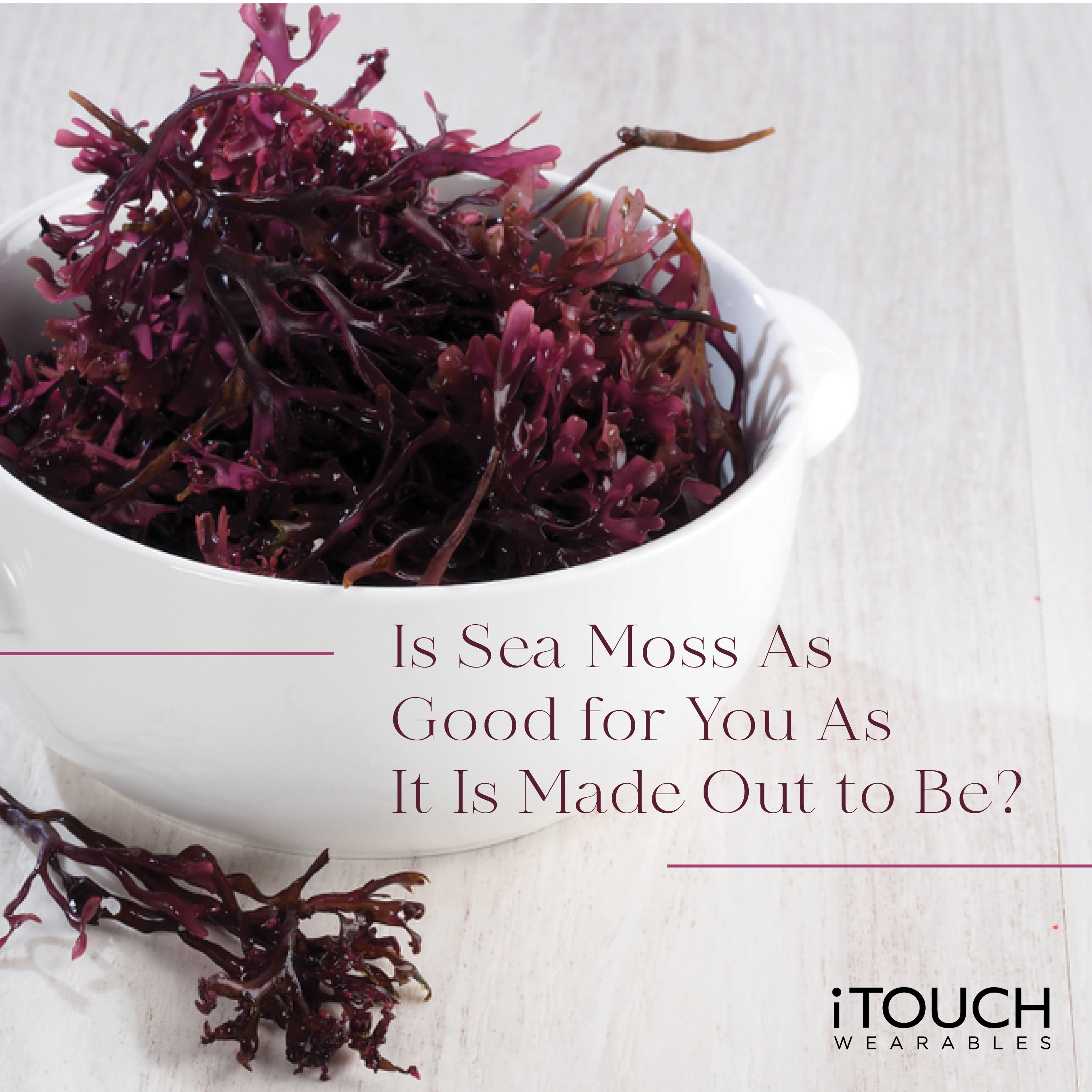
Is Sea Moss As Good for You As It Is Made Out to Be?
Sea moss (also known as Irish moss) is not something that you'll find in the typical American diet, but it is slowly making strides! However, if you're of Jamaican or even of Irish descent, there might just be a small chance you've at least heard of it.
Sea moss is a type of red algae that grows on the Atlantic coastlines and is cultivated around North America, Europe, and the Caribbean Islands. Since the 1800s, the Irish have been harvesting it from their rocky shores to use as a herbal medicine, while even using it as a way to get the nutrients they needed during times of famine. In terms of those who used it in Jamaican culture, it has been traditionally used to treat illness as well, some even saying that it makes the perfect aphrodisiac to increase male libido - which, unfortunately perhaps, there's no scientific proof for the latter. However, there is a ton of research that shows and proves just all the amazing benefits of the moss that our ancestors understood had a ton of healing potential for the mind and body!
When it comes to sea moss, while it's been embraced by these two cultures for centuries, sea moss has been getting a bad rap lately due to the news about carrageenan. Carrageenan, which is a derivative of this seaweed, is a thickening agent that can be found in dairy and alternative dairy products. This ingredient is said to cause inflammation in the body and was also eventually labeled as "human carcinogen" by the International Agency for Research on Cancer. We understand that this is some scary news discouraging many people from consuming this algae, but there are some things to note: carrageenan (a chemically processed ingredient) is different than sea moss. Sea moss is a whole food that is amazingly full of beneficial vitamins, nutrients, and antioxidants. If we cannot convince you to try it with just these facts alone, maybe these other benefits of sea moss can surely do the trick! Here is our guide on "Is Sea Moss As Good for You As It Is Made Out to Be?"
The Nutritional Value of Sea Moss

It is amazing to note that sea moss is actually an extremely rich, nutritious sea plant. Within it's nutritional make-up, it contains nearly 10% protein and about 15% of mineral matter. Some also believe that it contains 15 of the 18 essential elements that make up the human body. This includes great amounts calcium, iodine, sulfur, and potassium as well as Vitamins A, D, E, F, and K. This is why historically this amazing seaweed has been thought to have a positive effect on a wide variety of ailments, such as bladder disorders, bronchitis, halitosis (bad breath), intestinal disorders, and glandular problems to swollen joints, lung difficulties, thyroid conditions, tuberculosis, tumors, and ulcers.
Here is the nutritional breakdown of sea moss for 2 tablespoons of raw sea moss:
- Calories - 4
- Total Fat - 0 grams
- Cholesterol - 0 grams
- Sodium - 6.7 milligrams
- Potassium - 6.3 milligrams
- Total Carbohydrate - 1.2 grams
- Dietary Fiber - 0.1 grams
- Sugars - 0.1 grams
- Calcium - 1% of the DV
- Riboflavin - 3% of the DV
- Phosphorus - 2% of the DV
- Copper - 1% of the DV
- Vitamin C - 1% of the DV
- Iron - 5% of the DV
- Magnesium - 4% of the DV
- Zinc - 1% of the DV
The Health Benefits of Sea Moss

Beside from all the incredible nutritional benefits that come from consuming sea moss, here are some additional benefits that come from it:
- May Help With Digestion - Like chia seeds, aloe, and even okra, sea moss is food that is a great healing and soothing agent for the mucus membranes of the body, including in the respiratory and digestive system. According to several studies, sea moss can have a prebiotic effect during digestion, which means that it can increase beneficial short-chain fatty acids in the colon. These help to get rid of bad bacteria in the gut, and improve overall gut health and immunity.
- Help With Your Thyroid - It is essential for your body to take in vitamins. Sea moss contains both riboflavin (B2) and folate (B9), which are shown to breakdown proteins, carbs, and fats, and are also needed to form DNA and other genetic material. When folate pairs up with Vitamin B-12, they also help to create red blood cells.
- It Can Improve Skin Health - Because of its vitamin and mineral packed gelatin-like quality, many people use sea moss masks to soothe eczema, psoriasis, dermatitis and burns. It has been proven that the citrulline - arginine found in sea moss - can improve cell growth and metabolism. This compound also releases amino acids that are essential for collagen synthesis, that maintains smooth skin and silky hair.
How to Get Sea Moss In Your Diet

There are many ways to get sea moss into your diet. Sea moss is tasteless so you can add it to a variety of dishes. In fact, it's an especially great plant-based substitute for gelatin or other thickening agents making it perfect for any vegan diet! It is found that a ton of people like to add sea moss to their:
- Smoothies
- Juices
- Cakes
- Sauces
- Homemade ice cream
Remember, since Irish moss has little to no flavor, you can get creative when it comes to reaping the benefits of this nutritious algae. So don't be afraid to experiment. You might come up with a new, tasty recipe. Share with us whether or not you'll try sea moss by following us on Instagram @itouchwearables and Facebook @itouchwearables and by dropping a comment and like. Also, be sure to check out our new articles published daily!
-Patrick


